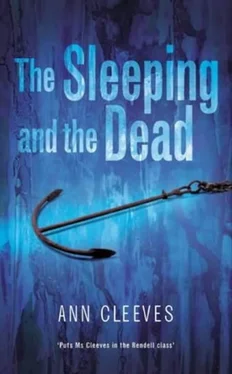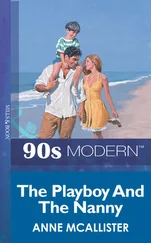She’d stopped being scared. Now she was only hungry and uncomfortable. The water to the flat was still connected. The toilet flushed and when she’d complained of being thirsty he’d brought her a drink in a blue plastic mug with a moulded handle. They’d had an identical set to take on picnics when she was a kid. He’d given her a biscuit too because she’d said she was starving. It was soft and stale.
‘Is this all there is?’ she’d demanded.
At that, he’d been flustered and said she’d soon be out of there. It wouldn’t hurt her to go without for a couple of days.
Yeah, she’d thought. She could live off her bum for a week. If she came out of this thinner perhaps the adventure would be worth it. That had led to a picture of a skeletal Mel. She had pushed the image from her head. Remembering Mel, dead in the cemetery, had made her panic. She needed to think straight.
It was clear to her that there’d been no forward planning in the boy’s decision to bring her to the flat. If he’d thought about it in advance, he’d have got food in. Even if he didn’t mind starving her, he’d have wanted to eat and as far as she could tell he didn’t have a stash hidden away. With the arrogance of someone who usually thrived on the challenge of exams, who found learning easy, she’d put him down as a bit dim. She’d worked out the sort of lad he was; there’d been someone like him in every class since she’d been an infant. The name for them in her school was ‘charvie’, meaning scally, loser, someone you wouldn’t be seen dead with socially. Charvies were the kids who started school without being able to tie their laces. They wet their pants and came last in spelling tests. Teachers hated them. In primary school they started fights in the playground and failed their SATs, and in high school they got involved in petty crime, dealing in single cigarettes, then blow or smack. When they were at school, which wasn’t often.
When Hannah heard Rosie talking like that, out would come the lecture. ‘How on earth can you be so judgmental? You don’t know anything about those kids. You don’t know where they come from or what their families are like. Of course people can change if you give them a chance.’ She thought she could change her prisoners by giving them books. What planet was she on? Rosie knew this boy was a charvie, always had been, and so he was no match for her.
She sat now with her hands behind her wriggling her fingers so she wouldn’t lose the feeling in them, and she tried to work out the best thing to do. She couldn’t rely on Hannah to go to the police. Hannah would do just as the boy said. She wouldn’t take any risks. But Rosie wasn’t going to see the boy walk away with all that money – money which could see her through university, buy her a holiday somewhere seriously hot, a little car and driving lessons. Then she wondered if Mel had died because her parents had refused to pay up.
When they’d come into the flat the boy had opened the door with a key, but he hadn’t locked it behind him. It was a Yale lock with a snick, so if she got to it she’d be able to get out. Although he was thin and wiry she didn’t think he was as fit as she was. He’d been smoking since they’d got there, tiny roll-ups. He crouched over a shiny tin to make them, so no stray strands of tobacco were lost and he used both hands. So while he was making his cigarettes he couldn’t hold his knife. She wondered what he’d do when the tobacco ran out.
He hadn’t made any sexual advance towards her. Even when he’d had his arms around her pulling her to the car, when his finger was stroking her neck, she hadn’t thought he was interested. He had other obsessions. Her body wasn’t something she could bargain with. She could tell.
It was possible that he didn’t think she’d try to escape. He’d probably grown up with the same sorts of prejudice about her as she’d had about him. He’d see her as a lardy wimp who couldn’t look after herself. He even left her while he went to the toilet. It was off the hall right next to the entrance to the flat, and he left the bathroom door open, but if he’d thought she’d make a run for it, he’d have tied her legs. He just didn’t think.
All the time she kept her eyes on the blade. She knew he could move quickly over short distances. He’d done that in the street outside Joe’s. But she thought that once she got out of the flat she’d be able to outpace him down the stairs and into the road. Usually the knife was in his hand. Otherwise it was on the floor just beside him. He was as connected to it as some of her mates were to their mobiles. You couldn’t imagine him without it. He’d said, as he let her out of the car when they’d first got here, ‘I’ve used it before, you know.’ Boasting. As if he were just waiting for an excuse to use it again.
As it grew dark, she let her head drop forward so her chin was on her chest, pretending to drowse. She’d slept a couple of hours the night before. Hannah always said it was a gift being able to sleep anywhere. But she wasn’t sure the boy had. He must be exhausted. Despite his nervousness and his restless energy, he wouldn’t be able to stay awake for ever.
There were no curtains at the window. She couldn’t see from where she was sitting but on the way in she’d glimpsed the river, cranes, and the skeleton of an oil platform, half constructed. Light came in from the glow of the city on the horizon. It reflected on the blade on the floor beside the boy. He still had his palm flat on the handle, but his breathing was regular now. Rosie was leaning back against the wall, her knees bent. She stretched one leg, tensing and relaxing the calf muscles. The boy didn’t stir. She repeated the movement with the other leg. Still his breathing didn’t change.
It crossed her mind that it might be a trick. Perhaps he wanted her to try to run. Then he’d have an excuse to chase her and hold her down and threaten her. Perhaps that was what excited him. But she didn’t think so. Charvies could be devious, but he hadn’t tried on anything like that before. He saw her as a means of making money. That was all.
She bent her knees again and bent down, so her back slid slowly up the wall until she was standing. She shook the stiffness out of her legs. Still the boy slept. She walked quickly into the narrow hall towards the front door.
She had already realized there was no way she could free her hands. She’d spent hours the night before trying. She’d seen films where magically ropes had loosened sufficiently to allow one hand to slide out. That wasn’t going to happen here. When she moved, the nylon twine cut into her wrists. They were still firmly fixed behind her back. She stood at the front door and turned her back to it, leaning forward so she could raise her straightened arms high enough to reach the Yale snick. The joints in her shoulders seemed to tear with the strain. Even when her fingers touched the catch, it was more difficult than she’d expected to open it blind. At last the knob turned. She gave a gentle tug and the door opened. The boy, caught in the orange glow from the window, muttered in his sleep. She froze but he didn’t wake and she moved out on to the landing.
She’d reached the first floor when she heard him come after her, bellowing and stumbling as if he’d wakened suddenly and was still half asleep. She thought then that all the flats must be empty, because there was no response to the noise. She’d have to get out. There was just enough light to see where she was going, some dim, emergency lamp high on the wall. She carried on down, pumping her legs, one step after another, keeping the movements small and tight, saving her energy for when she reached the bottom. Her shadow danced ahead of her.
At the bottom the steel-plated double door was open. She supposed it had been left like that the day before when they’d come in. Outside it was warm and dusty and she thought she could smell the dry mud of the river. She paused for a moment. She didn’t think the boy was gaining on her but in the distance there was muffled, amplified rock music – some sort of festival or outdoor show – and she wasn’t sure she would have heard his footsteps anyway. She needed a main road, lots of people. The music was too far away. There was a general hum of traffic and she got her bearings. She saw the lights of speeding cars in the distance beyond the building site. She started to run towards them, moving awkwardly because her tied hands threw her off balance. In the distance there was a bang and the splatter of fireworks from the festival. No sign of the boy.
Читать дальше












